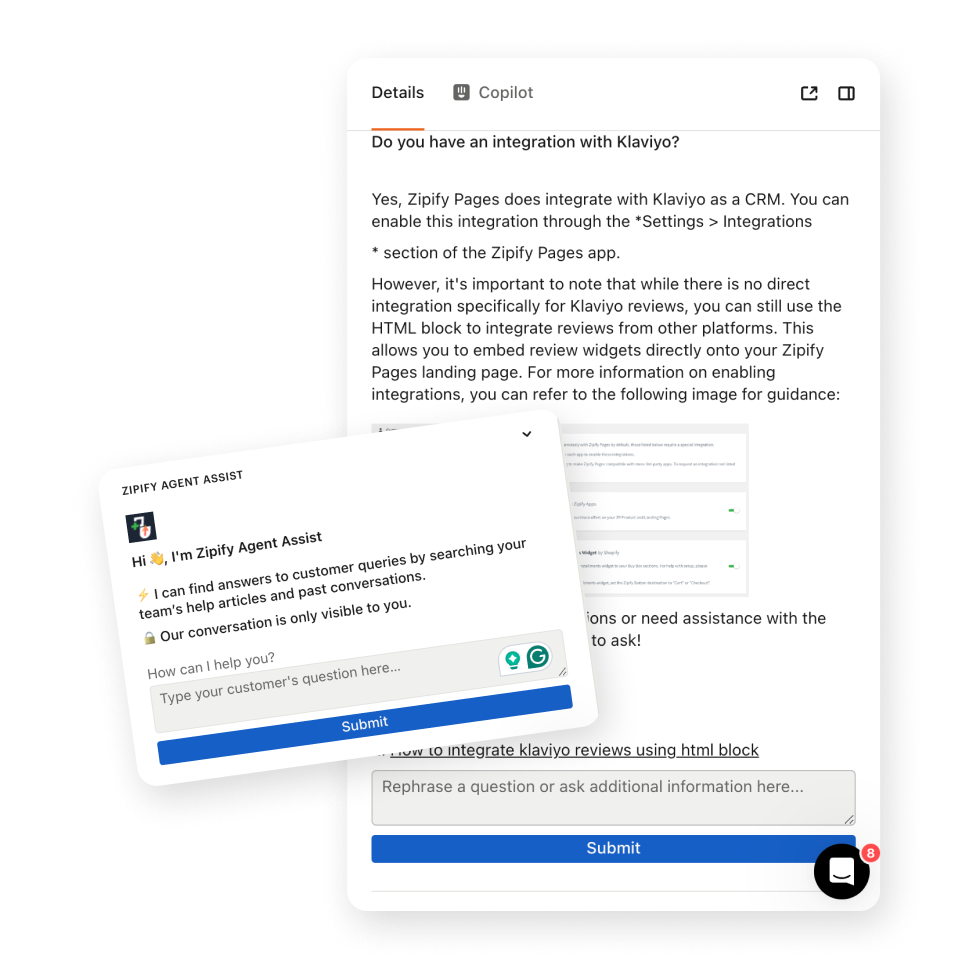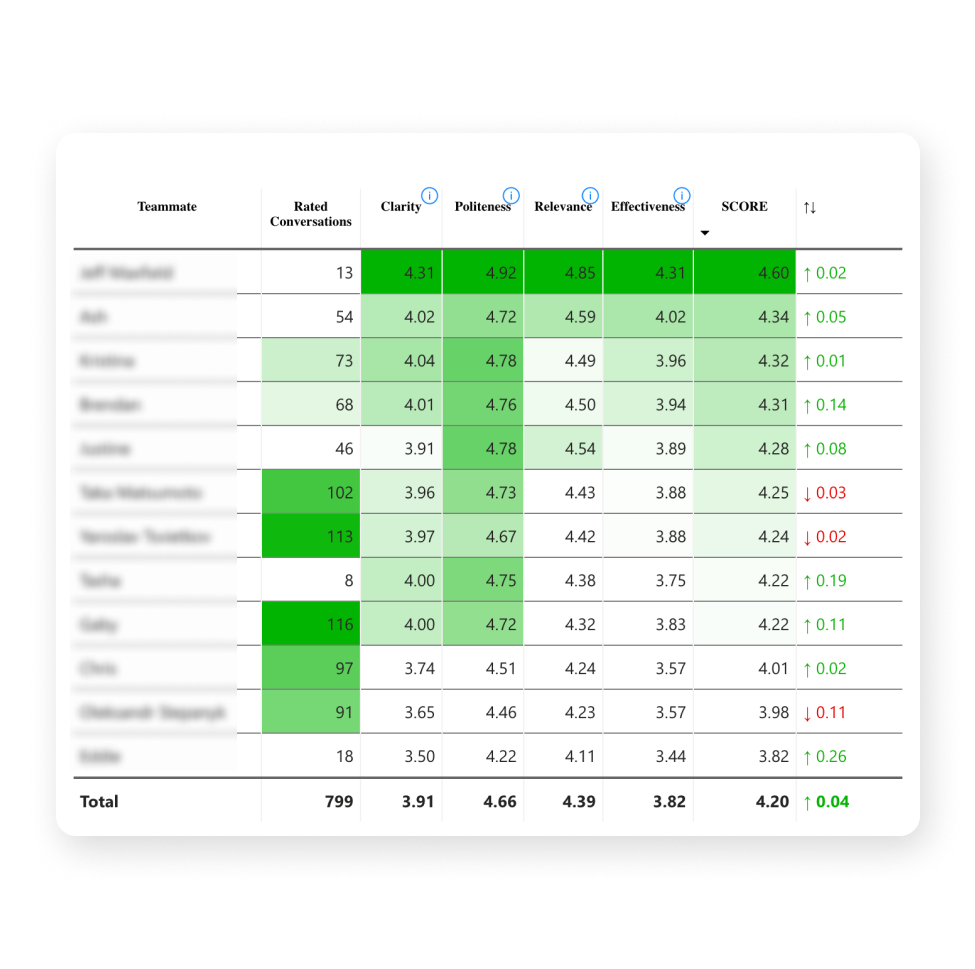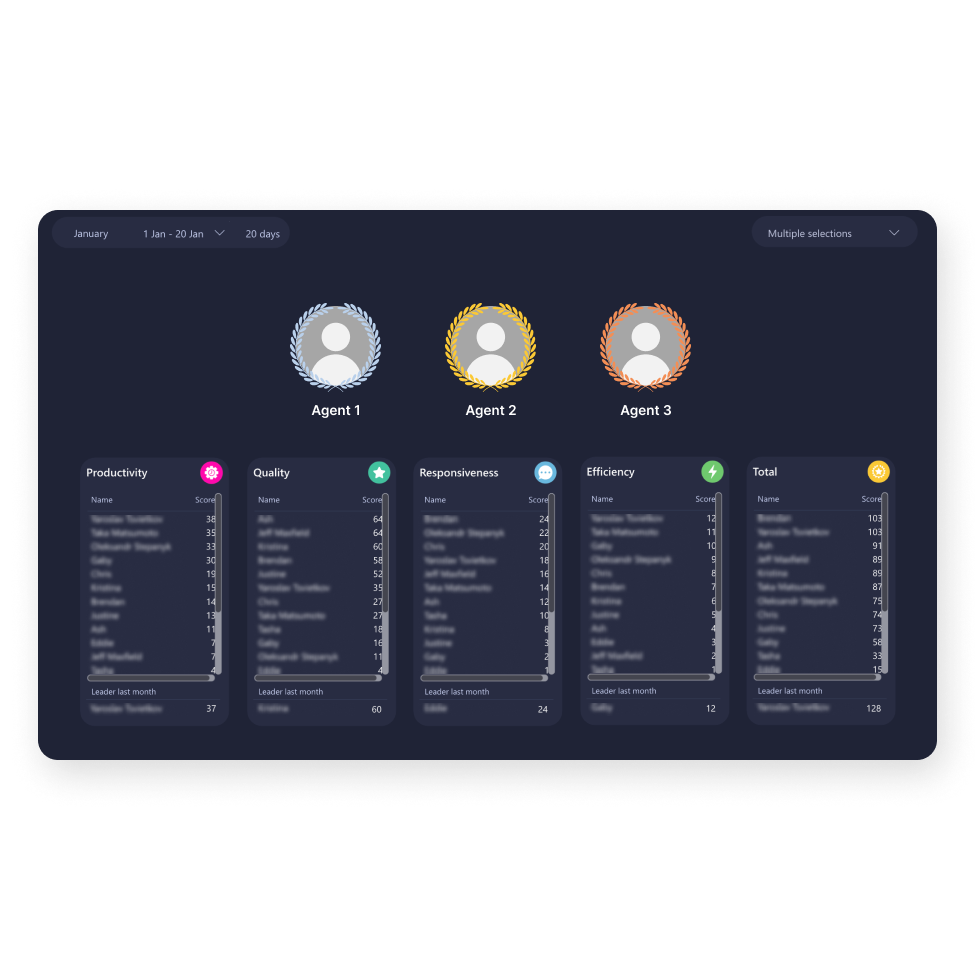2. Analytical Dashboard
Complementing the virtual assistant, Master of Code Global built a robust Analytical Dashboard to provide Zipify with unparalleled visibility into their support operations.
Performance Tracking & Goal Setting: This dashboard tracks crucial metrics such as average response time, issue resolution rates, and agent workload, enabling Zipify to set measurable goals, pinpoint areas for improvement, and optimize overall team performance.
Comprehensive Metrics Suite: The dashboard tracks 18+ performance metrics including response times, conversation quality, CSAT scores, customer sentiment, handling times, and productivity measures—all in one view.
Category-Based Leaderboards: Team rankings span five key categories: Productivity, Quality, Responsiveness, Efficiency, and overall scores, enabling nuanced performance recognition.









